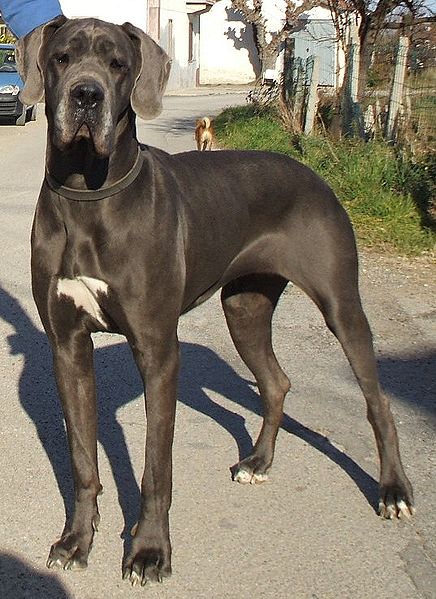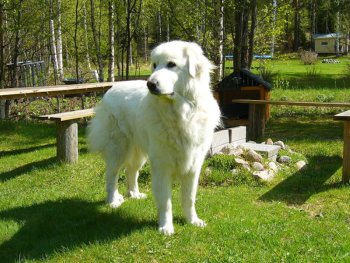Large Dog Breeds

Large Dog Breeds
When people think about large dog breeds, several things immediately come to mind: family and home protection and often big appetites and maintenance. For many homes, having a big dog around is not only elemental for feelings of safety and security, but also essential to bringing a family together. A big dog can be a playmate for kids of all ages (including adults!) and often their size belies their gentle, loving natures. Many people see a bigger dog and are automatically intimidated. But once they pet this large dog, it doesn't take long before the initial fear goes away. Big dogs can have big hearts and, for many, these are the strongest qualities a family pet can have.
More to Love
Big dogs often have some of the most radiantly healthy and colorful dispositions of any breeds. They command attention in both physical size and personality. When a big dog wants to play, they can be tough to ignore. Large dog breeds sometimes aren't aware that their weight can be a bit of a challenge in smaller areas like when a game of fetch or even an innocently vigorous tail-wagging could knock over a lamp or accidentally rearrange some knick-knacks. Just as you would baby-proof rooms where your newborns and toddlers roam, you would also want to puppy-proof play areas and common rooms where the dog's size could potentially be problematic. Such a small price to pay for such a huge, huggable hound!
Intelligent Design
Many of the large dog breeds also rank among the most intelligent. Working dogs like the Burmese Mountain Dog, or the Saint Bernard are diligent learners who love to be useful. German Shepherds and Doberman Pinschers are often used as guide dogs for the blind, and K9 dogs are typically used for police work. Bloodhounds' unusual keen and specific sense of smell is synonymous with search and rescue. Bullmastiffs are revered for their sharp memory, sometimes able to pass complex image-association tests. Choosing a dog with a purpose is always helpful in finding the perfect fit for your family.
Finding the Right Large Breed
There are a few factors to consider when searching for a dog breed. Here are a few broad areas you'll want to evaluate before selecting a larger dog.
Environment - larger dog breeds need a lot of room to roam or run. Small apartments or condos may not make the most ideal home for a larger breed. Even if given frequent access to parks to play or long walks, a confined living environment can be developmentally stifling both physically and emotionally. Medium to larger family homes with a healthy backyard for playing and running are more suitable for larger breeds to reach to their full potential.
Health Issues - Be sure to research your potential large dog breed for the types of health issues they may be prone to. Specifically for pure-bred dogs, genetic maladies ranging from mild hip dysplasia to acute arthritis are common. Many large breeds may also be more susceptible to canine cancers and musculoskeletal diseases due to their size. Research into health issues should also entail owners' allergies, and whether or not the dander from the breed is likely to cause a mild or severe reaction.
General Disposition - Some breeds fair better among other types of dogs than others. Some large breeds also have a more nurturing and loving disposition toward small children than others. When researching large dog breeds, think about your family and how this breed interacts with children and with other pets.
Overall Expense - Big dogs have big appetites, so generally they eat a lot and require a bit more maintenance than smaller breeds. Factoring food and pet accessories into your general budget, as well as researching costs of veterinary visits, immunizations and pet insurance, is a smart precursor to choosing a large breed dog.

Return from Large Dog Breeds to Dog-Breeds-Explorer Homepage
Large Dog Breeds
• Boxer